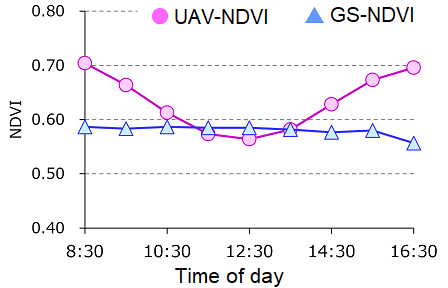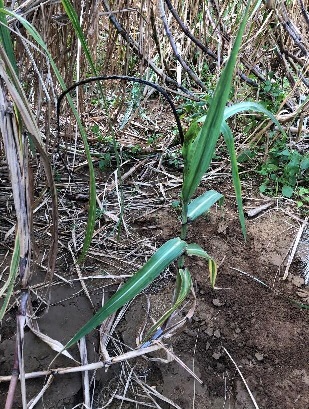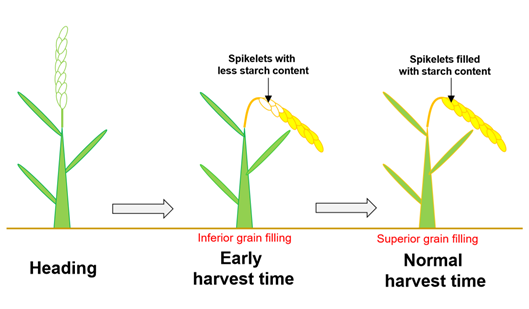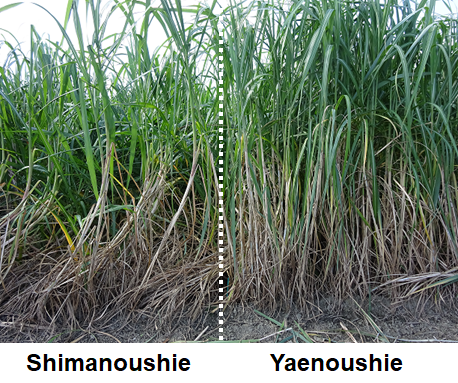

National Agriculture and Food Research Organization (NARO) has developed a new system which calculates the amount of additional fertilizer needed to stabilize rice yields based on the simple and accurate growth diagnosis by merging the normalized difference vegetation index (NDVI) obtained from the sky by unmanned aerial vehicle (UAV-NDVI) with the NDVI collected on the ground by GreenSeeker handheld crop sensor (GS-NDVI). It is expected that this system will contribute to stabilizing both the yield and quality of rice. Read more

The National Agriculture and Food Research Organization (NARO) in collaboration with Toyota Motor Corporation, has developed a DNA marker useful to select sugarcane clones resistant to smut disease. This research result will make it possible to promote the efficient breeding of sugarcane varieties resistant to smut disease, a major disease of sugarcane.In collaboration with Toyota Motor Corporation, NARO identified chromosomal regions involved in the resistance to smut disease, a major disease of sugarcane, and developed a DNA marker that enable efficient selection of smut disease resistance in sugarcane, which shows high polyploidy and has been difficult to develop DNA markers. Read more

Production area with potential for ratooning is predicted to increase as global warming proceeds. The National Agriculture and Food Research Organization (NARO) revealed that controlling harvest time and cutting height of the first crop in ratooning method will drastically increase the yield to approximately 15t/ha at an experimental field basis. The novel production technique is expected to contribute to the stable supply of rice in the era of global food issue as well as to meet the demand for the establishment of the low-cost production system of rice. Read more

The Kyushu Okinawa Agricultural Research Center, NARO(KARC/NARO) has developed a new sugarcane variety "Yaenoushie" for forage use derived from a native wild species (Saccharum spontaneum) in Japan. This new variety is characterized by its extremely strong resistance to smut disease. It also has a good resistance to lodging thereby it could facilitate shortening of time required for harvesting using combine harvester. This variety could also help in increasing the production and self-sufficiency of feeds for livestock farmers in the Nansei Islands where the land area is limited. Cultivation of the "Yaenoushie" sugarcane variety has already started in Nanjo City, Okinawa Prefecture.Read more